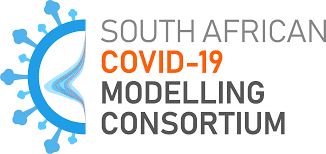The South African Covid-19 Modelling Consortium says the 4th wave of Covid-19 is likely to be smaller than previous waves.
It says the tracking of new cases will also become less useful as vaccination rates improve, with the focus that should rather be placed on hospital admissions.
The Consortium says discussions are currently underway to rethink what metrics are used to track new waves of the disease, and the actions that are triggered, as a response.
Data has shown vaccination protects against severe disease and thus hospitalisation.
The Modelling suggests that the 4th wave will have a much lower rate of hospital admissions and deaths, in relation to new cases and infections. Researchers say this points to the fact that vaccines work.
Key outcomes of the Consortium’s latest scenario planning:
- The numbers of infections and detected cases may be comparable to earlier waves, depending on the scenario; however, the ratio of admissions and deaths to infections and cases is expected to be substantially lower than in previous waves, as a result of the vaccination coverage, particularly among the elderly, and protection from prior exposure.
- Model scenarios depict admission waves of different sizes in each of the provinces as a result of changes in behaviour, which reflects a combination of government-imposed restrictions and
individual actions. - Even in the hypothetical scenario of a complete abandonment of a behavioural response to resurgence, the size of the 4th wave in admissions is projected to be smaller than the 3rd wave,
in the absence of a new variant. - If a variant with a 25% relative reduction in protection from prior infection and vaccination enters circulation, the resultant wave in admissions is expected to be higher (compared to the no
variant scenarios), though vaccines will continue to have an impact and may protect the most vulnerable from severe illness. - If increases in contacts occur in January, as opposed to November, later and smaller waves are expected as a larger proportion of the population will be vaccinated.
- It is important to note that smaller peaks in admissions do not necessarily imply that future waves will have less impact on the health system and health care workers. Whether or not the
admissions will result in overwhelmed hospitals and avoidable COVID-19 deaths also depends on how much hospital capacity can continue to be made available. - Even with continued behavioural fatigue, rapid vaccination of the population provides a powerful tool to reduce severe illness and death.


